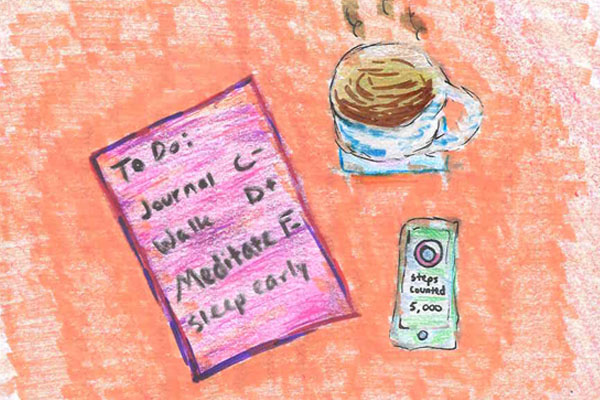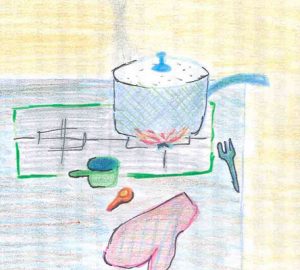
There are various estimates of what exactly the self-care industry entails and how much it is valued. The spokes of it are anything from self help books to meditation apps to skincare kits. The bottom line is, people will pay for what’s best for them. And who can blame them? Everyday more things happen and sometimes it’s easier to just smear a face mask on or pretend to breathe for five minutes than think about what’s really bothering us.
Even if we do practice self-care routines, there’s a real risk of just monitoring yourself than actually benefiting from it. I tend to journal when I’m anxious and I make notes to myself to meditate, eat and exercise. When I don’t do something on the list, I feel worse than when I started.
With grades, projects and assignments hanging over our heads, the last thing we as students need is one more thing by which to evaluate ourselves. Self care is supposed to be good for you, but when does it stop being about self reflection and cross the line into rumination? Yes, exercise is good for you, but do you do it so you can take care of yourself or to avoid what’s really on your mind? Do you read self help books or do you carry one around and never get around to it?
The problem isn’t with these tasks or with how hard it is to keep up with them. I try to meditate and usually forget, going several weeks without it. The problem is conceiving of self care in terms of success and failure. You don’t need to wait for feedback or assign any meaning to what you do. If you took care of yourself, you took care of yourself. If you ate, you ate. If you meditated, you meditated. There’s no doing it well, there’s just doing it. If you can’t clear your mind by focusing on your breath, then don’t. Find something else that clears your mind. This isn’t to say don’t try at all, always try, but there’s no such thing as failure when it comes to your relationship with yourself.
This awareness, this relationship with the self, can sour any effort to better ourselves. We are constantly asked to reflect on our lives, our lessons, our accomplishments; is it any wonder we apply the same approach to self improvement? Sometimes, the weirdest thing to do in academia is to just not think at all. Don’t congratulate yourself for how healthy you are by eating organic, just enjoy the food.
Learning to take care of yourself is a lifelong lesson. It doesn’t always feel good, like eating a delicious meal. Sometimes — a lot of times — stuff just hurts and nothing can make it better. When it gets that bad, it can be easy to get frustrated when none of your coping methods help. The hardest part of taking care of yourself is realizing you won’t always be able to, and that’s not a failure on your part.
Once, when I was having a rough night, I went to the supermarket and saw the aisles of self-care products. I bought a face mask and took it home. The packaging was pretty. It wasn’t a usual aspect of my self care routine, but who cared? I went home and put the mask on, rubbing it over my cheeks and trying to avoid my hair. An ineffable sense of disappointment settled in my skin, and I wanted to scratch the mask off as soon as it was on. I looked at the packaging, at the cartoon woman smiling and relaxed. I felt cheated. I thought about why I felt cheated. I thought about other times I felt cheated. I thought about what I was going to do about it. I sat back and set my timer. Sometimes, the best thing you can do is just sit with the pain.



























